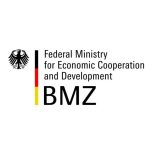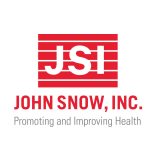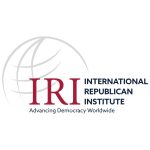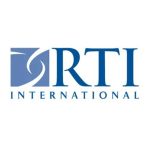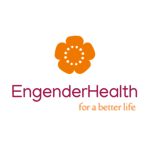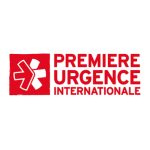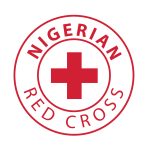PROJECTS OVERVIEW
TSHIP PROJECT
The partnership between TSHIP and LHI resulted in improved access to and utilization of MNCH service
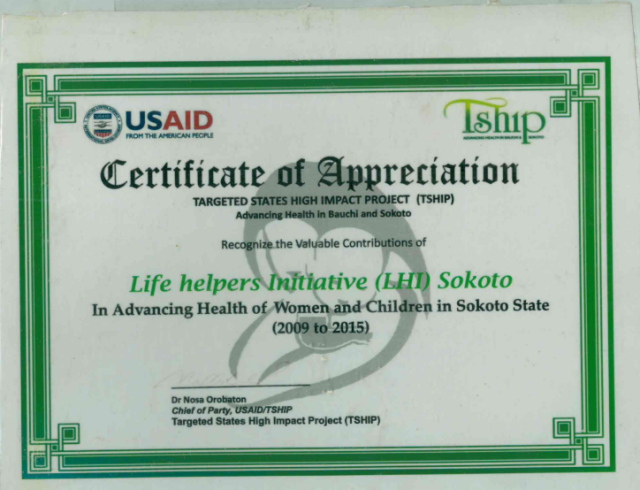
Notice: Test mode is enabled. While in test mode no live donations are processed.
PAST PROJECTS
The Integrated Health Program (IHP), a flagship initiative by USAID Palladium in partnership with Life Helpers Initiative (LHI), has been actively implemented over the past 18 months in Sokoto, Bauchi, Kebbi, and Ebonyi States. This collaboration focuses on improving access to quality healthcare services, strengthening the health system, addressing maternal and child health challenges, and combating preventable diseases.
Through this 18-month partnership, LHI has played a pivotal role in community mobilization, capacity building, and enhancing awareness of healthcare practices. Together, the initiative has achieved significant milestones in reducing health inequities and fostering sustainable health outcomes for underserved populations.
CARE International in parntership with Life Helpers Initiative (LHI) in Yobe State, has been a beacon of hope and resilience for vulnerable communities. Focused on addressing critical needs in health, education, and livelihood empowerment, the project targets marginalized populations, particularly women and children, to improve their living standards and foster sustainable development.
Key achievements include capacity-building programs for community members, enhanced access to essential health services, and initiatives promoting gender equality. Together, CARE International and LHI continue to make significant strides toward transforming lives and creating long-lasting change in Yobe State.
The ZOA Jere Project, a 24-month collaborative effort between ZOA International and Life Helpers Initiative (LHI), focuses on supporting displaced and vulnerable communities in Jere Local Government Area, Borno State. The project addresses critical needs such as livelihood restoration, food security, and access to basic services, empowering individuals and households affected by conflict.
Over the past two years, the project has implemented targeted interventions, including skills training, capacity-building workshops, and the provision of essential resources. These efforts have contributed to rebuilding lives and fostering resilience among marginalized populations. Together, ZOA and LHI remain committed to creating sustainable pathways for recovery and development in Borno State.
The ACE3 Project (Accelerating Control of the HIV/AIDS Pandemic in Nigeria), implemented in partnership with Health Systems Consult Limited and Life Helpers Initiative (LHI), is an 11-month intervention aimed at strengthening the health system in Sokoto State. The project focuses on combating HIV/AIDS through enhanced service delivery, community engagement, and capacity building.
Key achievements of the project include:
- Enhanced HIV/AIDS Prevention & Treatment: Capacity-building initiatives have empowered frontline healthcare workers with the requisite knowledge for delivering high-quality HIV testing services (HTS) and antiretroviral drug (ARV) treatment. This has resulted in improved retention rates and better health outcomes for individuals living with HIV/AIDS.
- Stronger Healthcare Systems: Collaborative monitoring alongside supportive supervision visits identifies gaps in service delivery, ensuring that necessary resources are always available. These efforts guarantee the delivery of high-quality care to patients while strengthening the overall healthcare system.
Through innovative approaches and strategic partnerships, the ACE3 Project continues to accelerate the control of the HIV/AIDS pandemic and improve health outcomes in Sokoto State.
The Strengthening Health Outcomes for Women and Children (SHOW) Project, a 36-month partnership between PLAN International and Life Helpers Initiative (LHI), focuses on improving the health and well-being of women and children in Sokoto State. This initiative addresses critical issues such as maternal and child health, reproductive health, and nutrition through targeted interventions and community engagement.
Key achievements of the project include:
- Improved Maternal and Child Health: Through awareness campaigns and capacity building for healthcare workers, the project has enhanced access to quality healthcare services for women and children.
- Reproductive Health Advocacy: Community outreach programs have increased knowledge about reproductive health, promoting family planning and reducing maternal mortality rates.
- Strengthened Community Systems: Empowering local stakeholders and fostering collaboration with government health systems ensures sustainable health outcomes for the targeted populations.
Together, PLAN International and LHI remain committed to transforming lives and building healthier communities in Sokoto State through this impactful project.
The European Union-funded project, implemented by Save the Children International (SCI) in partnership with Life Helpers Initiative (LHI), focuses on addressing the critical needs of vulnerable communities in Yobe State. This initiative aims to enhance resilience, improve access to basic services, and support the recovery of conflict-affected populations.
Key interventions include strengthening child protection systems, improving access to quality education and healthcare services, and fostering livelihood opportunities for families. Through this collaboration, SCI and LHI have empowered communities with sustainable solutions, ensuring long-term recovery and development in Yobe State.
The PLAN BMZ Project, a 24-month partnership between PLAN International and Life Helpers Initiative (LHI), focuses on enhancing resilience and improving livelihoods in Yobe State. This initiative targets communities affected by conflict and climate challenges, addressing critical needs in agriculture, education, and access to essential services.
Key achievements of the project include:
- Enhanced Livelihoods: Through training programs and resource support, the project has strengthened agricultural practices and empowered households to improve food security and income generation.
- Access to Education: Rehabilitating schools and providing educational materials have ensured that children in vulnerable communities continue their education despite challenges.
- Community Resilience: Empowering local stakeholders through capacity building and promoting sustainable practices have enabled communities to adapt and thrive in the face of adversities.
The PLAN BMZ Project exemplifies a collaborative effort to rebuild and strengthen communities, ensuring long-term development and stability in Yobe State.
The MSH (Management Sciences for Health) Project, a 4-month partnership with Life Helpers Initiative (LHI), is aimed at strengthening healthcare systems and improving health outcomes in Zamfara State. This short-term but impactful project focuses on delivering high-quality healthcare services, particularly in maternal and child health, as well as capacity building for healthcare providers.
Key highlights of the project include:
- Capacity Building: Training sessions for healthcare workers to enhance their skills in delivering effective and efficient healthcare services.
- Improved Service Delivery: Strengthening health facilities to ensure access to quality maternal and child health services for underserved communities.
- System Strengthening: Collaborative efforts to identify gaps in healthcare provision and implement sustainable solutions for long-term improvement.
The MSH Project in Zamfara demonstrates the power of focused interventions in driving immediate and lasting improvements in healthcare delivery.
The Targeted States High Impact Project (TSHIP), a collaboration between Life Helpers Initiative (LHI) and development partners, focused on improving maternal, newborn, and child health in Sokoto State. This impactful partnership emphasized strengthening healthcare delivery systems and increasing community awareness to address preventable health challenges.
Key achievements of the TSHIP-LHI partnership include:
- Enhanced Healthcare Access: Supported healthcare facilities with resources and training to deliver high-impact services, including immunization, antenatal care, and family planning.
- Community Mobilization: Engaged local communities through health awareness campaigns, ensuring better understanding and adoption of essential health practices.
- Capacity Development: Trained healthcare workers and community health volunteers to improve service delivery and sustain health interventions.
The TSHIP Project, in collaboration with LHI, significantly contributed to reducing maternal and child mortality, leaving a lasting legacy in Sokoto State.
The NEI Plus (Northern Education Initiative Plus) Project, in collaboration with Life Helpers Initiative (LHI), focused on improving access to quality education for children in Sokoto State, particularly targeting marginalized and out-of-school children. This initiative aimed to address barriers to education, promote literacy, and strengthen community involvement in the education sector.
Key achievements of the NEI Plus-LHI partnership include:
- Increased Access to Education: Supported the enrollment and retention of out-of-school children through alternative learning centers and formal schools.
- Enhanced Literacy Outcomes: Implemented innovative teaching methods and provided learning materials to improve literacy and numeracy skills among children.
- Community Engagement: Mobilized communities to support education initiatives, creating a sustainable environment for learning.
The NEI Plus Project, in collaboration with LHI, contributed to transforming education in Sokoto State, empowering children with the tools they need for a brighter future.
The NDI (National Democratic Institute) Project, in collaboration with Life Helpers Initiative (LHI), focused on promoting democratic governance and enhancing civic engagement in Sokoto State. This initiative aimed to empower communities with the knowledge and skills to actively participate in democratic processes, fostering transparency, accountability, and inclusivity.
Key achievements of the NDI-LHI partnership include:
- Civic Education: Conducted awareness campaigns and workshops to educate citizens on their rights, responsibilities, and the importance of active participation in governance.
- Capacity Building: Trained community leaders, youth, and women groups on advocacy and leadership skills to amplify their voices in decision-making processes.
- Strengthened Local Governance: Facilitated dialogues between citizens and government representatives to enhance trust, accountability, and collaborative problem-solving.
Through the NDI Project, LHI contributed significantly to strengthening democratic practices and promoting good governance in Sokoto State.
The IRI (International Republican Institute) Project, in collaboration with Life Helpers Initiative (LHI), focused on promoting gender inclusion in political and governance processes in Sokoto State. This initiative aimed to empower women and marginalized groups to actively participate in decision-making and leadership roles, fostering inclusivity and equity in governance.
Key achievements of the IRI-LHI partnership include:
- Gender Advocacy and Awareness: Conducted workshops and campaigns to raise awareness about the importance of gender equality in politics and governance, breaking down barriers to women’s participation.
- Capacity Building for Women Leaders: Trained women on leadership, advocacy, and political engagement to enhance their capacity to take on active roles in governance and electoral processes.
- Inclusive Policy Dialogues: Facilitated discussions between women, community leaders, and government representatives to ensure that gender perspectives are considered in policymaking.
Through the IRI Project, LHI played a crucial role in advancing gender inclusivity, fostering equitable governance, and empowering women in Sokoto State.
The Nigeria State Accountability, Transparency, and Effectiveness (State2State) Project, implemented by DAI in collaboration with Life Helpers Initiative (LHI), is focused on strengthening governance structures in Sokoto State. This initiative aims to improve planning, budgeting, revenue generation, and service delivery while fostering increased civil society participation in governance.
Key achievements of the State2State-LHI partnership include:
- Improved Governance: Supported the development of transparent and accountable systems for better planning and budgeting in the health, education, and WASH sectors.
- Enhanced Revenue Generation: Strengthened the state’s capacity to mobilize and efficiently manage resources to fund essential services.
- Civil Society Engagement: Encouraged active participation from civil society organizations and communities in decision-making processes to ensure inclusive governance.
- Strengthened Service Delivery: Identified and addressed gaps in the delivery of health, education, and WASH services to improve outcomes for citizens.
Through the State2State Activity, LHI is contributing to building more effective, accountable, and transparent governance systems in Sokoto State, ultimately improving the quality of life for its residents.
The EU-ACT (European Union Agents for Citizen-driven Transformation) Project, in partnership with Life Helpers Initiative (LHI), focuses on strengthening the capacity of civil society organizations (CSOs) in Sokoto State to promote transparency, accountability, and citizen engagement. The initiative is aimed at empowering local organizations to drive positive social change and contribute to sustainable development.
Key achievements of the EU-ACT-LHI partnership include:
- Capacity Building for CSOs: Delivered training and mentorship programs to enhance the organizational, financial, and advocacy capacities of local civil society groups.
- Promotion of Transparency and Accountability: Facilitated community-driven initiatives to hold public institutions accountable and promote good governance.
- Citizen Engagement: Encouraged active participation of citizens in governance processes, fostering a culture of inclusivity and dialogue between government and communities.
- Strengthened Networks: Fostered collaboration among CSOs, creating stronger coalitions for collective action and advocacy.
Through the EU-ACT Project, LHI has played a vital role in amplifying the voices of civil society and promoting sustainable development in Sokoto State.
The Spotlight Initiative, a high-impact United Nations program, in collaboration with Life Helpers Initiative (LHI), is committed to ending violence against women and girls in Sokoto State. This transformative partnership focuses on addressing root causes of gender-based violence, empowering survivors, and fostering a culture of equality and respect.
Key highlights of the Spotlight Initiative-LHI partnership include:
- Community Awareness and Advocacy: Conducted extensive campaigns to raise awareness about gender-based violence, promoting zero tolerance for harmful practices.
- Empowerment Programs: Supported women and girls with resources, skills, and safe spaces to help them overcome violence and rebuild their lives.
- Strengthened Legal and Policy Frameworks: Worked alongside government and civil society partners to advocate for the enforcement of laws protecting women and girls and to improve access to justice for survivors.
- Engagement with Stakeholders: Collaborated with traditional leaders, community influencers, and civil society organizations to drive collective action against violence.
Through this impactful partnership, LHI and the Spotlight Initiative are making strides towards a safer, more inclusive society where women and girls can thrive without fear of violence or discrimination.
The Victims Support Fund (VSF) in collaboration with Life Helpers Initiative has launched a critical COVID-19 emergency intervention program targeting Internally Displaced Persons (IDPs) in Sokoto State. The initiative aims to provide essential food items and personal protective equipment (PPE) to vulnerable IDP communities who face heightened risks during the pandemic. The distributed relief packages include face masks, hand sanitizers, soap, and other hygiene materials to help prevent the spread of COVID-19 among these densely populated settlements.
The project also focuses on addressing food insecurity among IDPs by distributing staple food items such as rice, beans, vegetable oil, and other essential nutritional supplies to support families during this challenging period. This intervention demonstrates VSF and Life Helpers Initiative’s commitment to supporting Nigeria’s most vulnerable populations, particularly those who have been displaced from their homes and are now facing additional hardships due to the pandemic. The distribution strategy prioritizes fair and efficient delivery methods while maintaining proper social distancing protocols to ensure the safety of both beneficiaries and distribution staff.
The Systems Transformed for Empowered Actions and Enabling Responses (STEER) project, funded by USAID and implemented in partnership with Life Helpers Initiative, has made significant strides in enhancing the well-being of vulnerable children and families in Sokoto State. The project focuses on strengthening local systems and community structures to better identify, support, and protect vulnerable children while improving access to essential services including healthcare, education, and social protection. Through collaborative efforts with local stakeholders, STEER has helped establish sustainable support mechanisms that address the complex needs of at-risk children and their caregivers.
Working closely with community leaders, government agencies, and local organizations, the STEER project has implemented comprehensive interventions that include capacity building for caregivers, economic strengthening activities for vulnerable households, and improved coordination among service providers. Life Helpers Initiative’s local expertise and established community presence have been instrumental in ensuring the project’s successful implementation, helping to create lasting positive changes in the lives of vulnerable children and families across Sokoto State. The initiative has particularly emphasized developing local ownership and sustainability to ensure continued support for vulnerable populations beyond the project’s duration.
The Stabilization and Resilience Building Project, jointly implemented by Secours Islamique France (SIF) and Life Helpers Initiative (LHI), aims to address critical vulnerabilities and build sustainable resilience among at-risk populations in Zamfara State. This comprehensive intervention focuses on three key areas: vocational skills development, support for survivors of gender-based violence (GBV), and community peacebuilding initiatives. Through strategic partnerships with local stakeholders and community leaders, the project works to create lasting positive change in communities affected by insecurity and economic challenges.
The project employs a multi-faceted approach that includes establishing vocational training centers to equip beneficiaries with marketable skills, providing comprehensive support services for GBV survivors including psychosocial support and economic empowerment opportunities, and facilitating community dialogue sessions to strengthen social cohesion. LHI’s deep understanding of the local context and established community relationships complement SIF’s international expertise, ensuring that interventions are both culturally appropriate and effective. The project emphasizes sustainable solutions by building local capacity, strengthening existing community structures, and creating opportunities for economic independence among vulnerable populations, particularly women and youth in conflict-affected areas of Zamfara State.
UNICEF, in collaboration with Life Helpers Initiative (LHI), has implemented comprehensive child-focused interventions across Sokoto State, addressing critical areas of child protection, education, health and nutrition, and child rights. Through this partnership, the project has strengthened community-based child protection mechanisms, established children’s clubs in schools, and supported the implementation of child protection policies at the local government level. The education component has focused on increasing school enrollment, particularly for girls, while improving the quality of basic education through teacher training and the provision of essential learning materials. The project has also worked to reduce malnutrition among children under five through community-based management of acute malnutrition (CMAM) programs and promotion of optimal infant and young child feeding practices.
The child rights and protection initiatives have been particularly impactful, with LHI facilitating community dialogues and awareness campaigns to address harmful traditional practices, child marriage, and child labor. The project has established Child Protection Networks in various communities, trained community volunteers on child rights advocacy, and provided psychosocial support to vulnerable children. Through integrated health and nutrition interventions, the partnership has strengthened local health systems, improved immunization coverage, and enhanced maternal and child health services. UNICEF and LHI’s collaborative approach has ensured sustainable community ownership of these initiatives, with local stakeholders actively participating in protecting and promoting children’s rights and well-being across Sokoto State.
Management Sciences for Health (MSH) in partnership with Life Helpers Initiative (LHI) is implementing a health systems strengthening project in Zamfara State, Nigeria. The project aims to improve the quality and accessibility of primary healthcare services, with a focus on maternal, newborn, and child health (MNCH), family planning, and routine immunization.
Through this project, MSH and LHI are working to build the capacity of healthcare workers, improve health facility infrastructure, and enhance community engagement and participation in health services. The project is also supporting the Zamfara State government to strengthen its health system, including health information systems, logistics, and governance.
Brief: Alive & Thrive (A&T) Project in Partnership with Life Helpers Initiative (LHI)
Life Helpers Initiative (LHI) partnered with FHI 360 on the Alive & Thrive (A&T) Project to accelerate the scale of Maternal, Infant, and Young Child Nutrition (MIYCN) interventions in Sokoto State, Nigeria. As sub-grantees, LHI contributed to designing and implementing a comprehensive package of MIYCN activities aimed at reducing anemia, preventing low birth weight, promoting early and exclusive breastfeeding, and addressing wasting and stunting.
Project Strategies and Approaches:
- Designing Comprehensive MIYCN Interventions: Developed and deployed MIYCN interventions to address key maternal and child nutrition challenges.
- Government and Organizational Support: Collaborated with the state government and local organizations to ensure sustainable delivery of MIYCN services.
- Community Engagement: Partnered with community-based organizations to engage stakeholders like mothers, fathers, influential family members, and community leaders, driving increased demand for MIYCN services.
Project Implementation:
In the first year, LHI implemented the A&T Project in Bodinga and Dange Shuni Local Government Areas (LGAs), conducting activities aligned with project objectives. By the second year, LHI expanded its reach and continued capacity-building efforts supported by FHI 360, ensuring effective delivery of project goals.
Key Activities and Achievements:
- Capacity Building: Received training from FHI 360 to enhance organizational capacity for project execution.
- Community Sensitization: Conducted community awareness campaigns through health volunteers to promote exclusive breastfeeding and encourage the use of MIYCN services at health facilities.
- Data Validation Meetings: Actively participated in monthly LGA data validation meetings, contributing to discussions and distributing Information, Education, and Communication (IEC) materials to health service providers.
- Demand Creation and Mobilization: Facilitated community mobilization in 22 communities (11 in each LGA) to enhance accessibility, reporting, and utilization of MIYCN services.
Impact:
The project leveraged advocacy, interpersonal communication, community mobilization, mass media, and strategic data use to optimize health systems and create a supportive ecosystem for MIYCN innovations. Key outcomes included improved service delivery, increased community awareness, and better access to essential MIYCN interventions.
Through its efforts, LHI has significantly contributed to improving maternal and child nutrition in Sokoto State, aligning with A&T’s overarching objectives to optimize health systems, support MIYCN innovations, and leverage PHC mechanisms for sustainable impact.
Implimenting Partners














